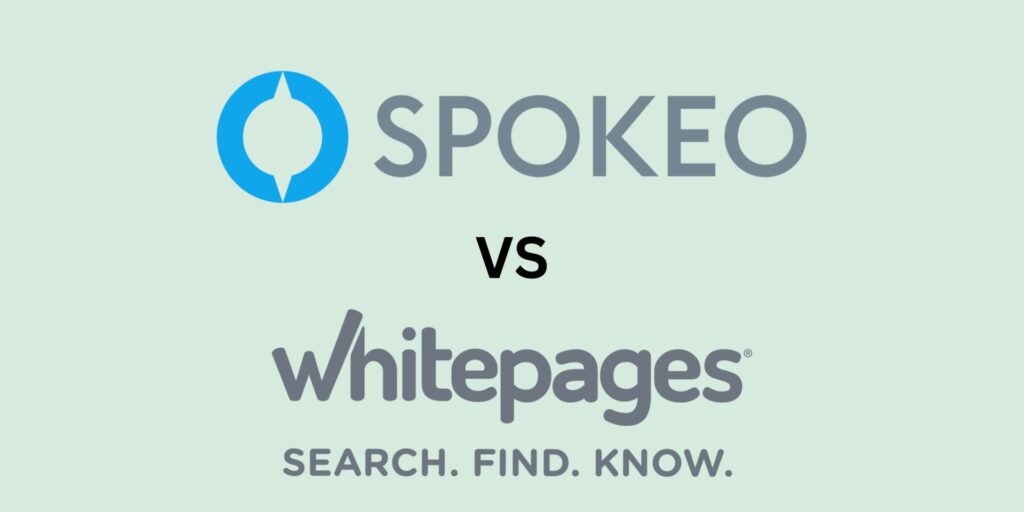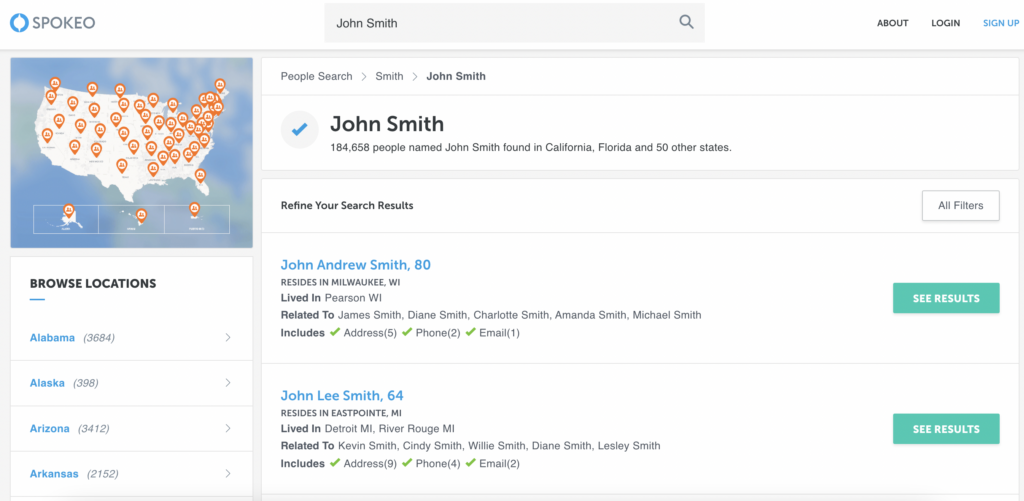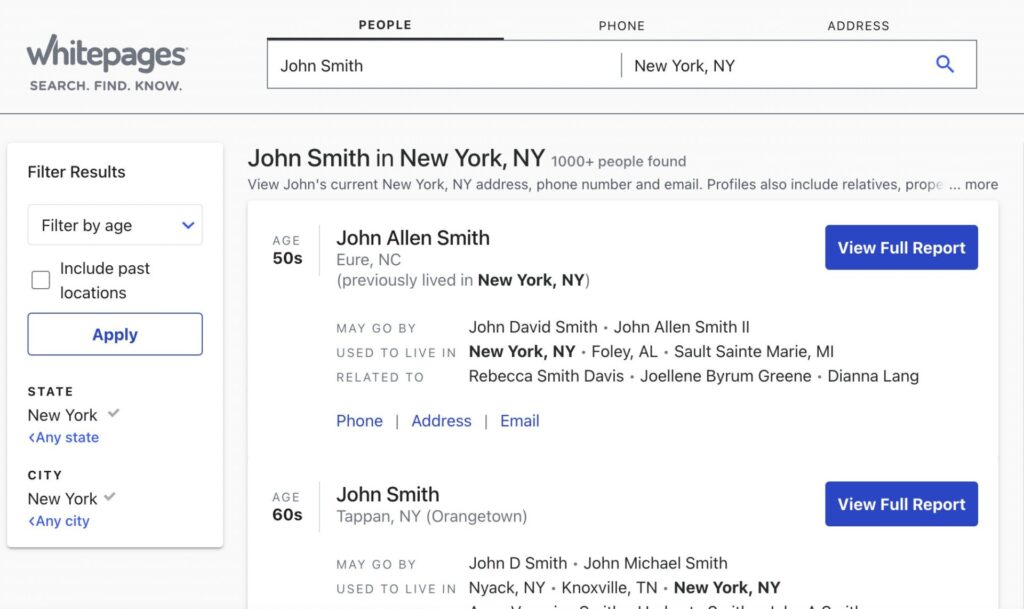
Spokeo and White Pages are both online services that provide information about individuals, but they are tailored for different purposes and utilize distinct methodologies in data aggregation and presentation.
Features
Spokeo is more of a social search engine that aggregates data from various online and offline sources to provide detailed information about individuals. This includes social media profiles, email addresses, public records, and more. It’s designed with a focus on helping users find and learn about people, their contact information, their online presence, and other personal details. Spokeo’s database is vast, pulling from a wide range of sources, including public records, marketing databases, and even user-generated content. The service is often used for reconnecting with old friends, verifying online sellers or buyers, and understanding more about people’s digital footprints.

White Pages operates as a traditional phone directory but with online capabilities, focusing primarily on providing contact information such as phone numbers and addresses. It leverages public records and standard directory information to help users find contact details about individuals or businesses. White Pages is particularly useful for finding people through their names, phone numbers, or addresses. Its services are often utilized for purposes like verifying the identity of a caller, locating businesses, and traditional contact lookups. White Pages also offers background check services, but its core functionality remains rooted in being a directory service.

The main difference lies in the breadth and type of data each service aggregates and how they present this information to the user. Spokeo’s approach is broader, aiming to paint a comprehensive picture of an individual’s online and public record footprint, making it a tool for deeper personal insight. White Pages, with its directory-focused model, emphasizes straightforward contact and identity verification information, making it more aligned with traditional directory assistance services.
Data Sources
In terms of data sourcing, Spokeo’s strategy involves a wider net, including social media and various public and private databases, which allows it to provide a richer set of information about a person’s digital and public record presence. White Pages, while also utilizing public records, focuses more on contact information, offering a more targeted dataset primarily for finding or verifying phone numbers and addresses.
Search Anyone for Free
Search and Verify Just About Anyone
Summary
Both Spokeo and Whitepages serve valuable but distinct roles in the landscape of online information services, with their differences underscoring the varied needs of users seeking information about individuals, whether for personal, professional, or safety reasons. We would comfortably recommend either people search service. We would give a slight edge to Spokeo for its more straightforward pricing plans and trial offering.
Comparison Table
| Feature | Spokeo | White Pages |
|---|---|---|
| Type of Service | Social search engine aggregating data from online and offline sources. | Online directory service focusing on contact information. |
| Main Purpose | Find and learn about people, their contact information, online presence, and personal details. | Provide contact information such as phone numbers and addresses for individuals or businesses. |
| Data Aggregation | Aggregates data from a wide range of sources, including public records, marketing databases, social media, and user-generated content. | Leverages public records and directory information focused on contact details. |
| Use Cases | Reconnecting with friends, verifying online sellers or buyers, understanding more about people’s digital footprints. | Verifying the identity of a caller, locating businesses, traditional contact lookups. |
| Core Functionality | Provides a comprehensive picture of an individual’s online and public record footprint. | Emphasizes straightforward contact and identity verification information. |
| Database Focus | Broad, including a vast range of personal and digital information. | Targeted, focusing primarily on contact information. |